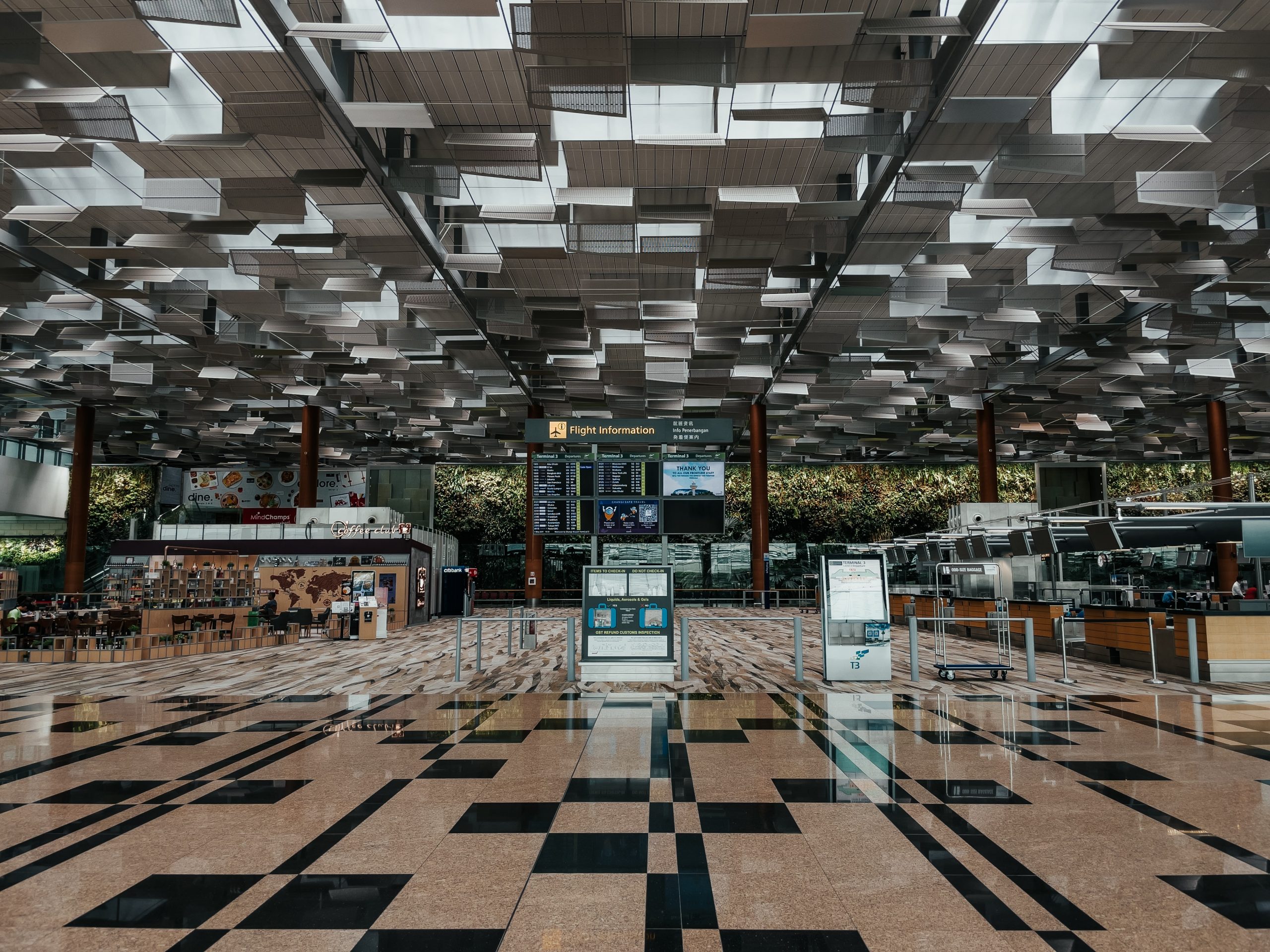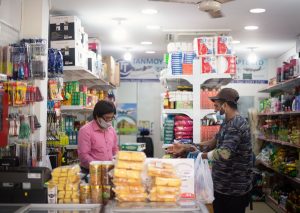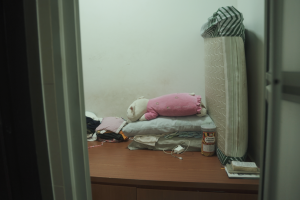Top Image: shawnanggg/Unsplash
A perennial question that inspires heated debate in Singapore is perhaps the painful disappearance of the infamous “kampung spirit”.
Some would argue that, along with the destruction of the actual kampungs, this community spirit has disappeared along with it. While others would say if you look hard enough, there have been subtle hints that this “kampung spirit” has made its way back to us, even if it’s a little different from how the older generation of Singaporeans remember it.
After more than two years into the throes of the pandemic, we are still finding our footing in this discombobulating experience. With social distancing rules and everyone relegated back home, it may seem like we are more isolated from each other than ever. Covid-19 has meant a time where I’m spending more time staring at screens rather than actual people.
Then, when travel resumed with the introduction of VTLs, it came with ever-changing regulations for each country and the constantly shifting rules; travel has become intimidating and challenging. Through this tough time, little glimmers of hope and camaraderie have turned up in the most unexpected of places.
The Digital Kampung
Travel has seemingly become a rather complicated task, whether for leisure or returning home; many have turned to Facebook groups for information and help in navigating the labyrinth-like rules of VTLs.
Facebook groups are not just for sharing common interests anymore. Like any millennial, travel was my entire personality and it dominated my social media feeds. With travelling soon returning to becoming everyday adventures, I had to know what travelling was already like for those who have taken a stab at the VTLs.
I decided to take a peek into one of the travel groups, namely VTL Travel to Singapore and Malaysia-Singapore Border Crossers (MSBC) 马新过境者, to see what I might be in store for. There are so many unknowns concerning travel, and perhaps one of these groups might be able to illuminate some of these questions for me.
With a request and a small click to join, I was in. I scrolled through the groups, and I realised these groups were abuzz with chatter, and it was not limited to just the topic of VTLs.
Besides providing information to prospective travellers, these online groups also foster connection, sharing the despair and anguish amid these unpredictable conditions. More than that, these Facebook groups have also served as a lifeline for those who are eager to travel but have no idea where to start.
While Facebook started as a way to keep in touch with friends and family, “over time, it has also evolved into a place to connect with others around the world who share the same interests”, explains Grace Clapham, the Director of APAC Community Partnerships from Meta.
“The pandemic forced groups to innovate, and we saw a variety of ways that these communities came together to support one another,” Grace continues. During the pandemic, there was visible growth in the number of Facebook groups being set up, “people were coming together to support each other through pandemic specific groups like Travelling in and out of Singapore, but also more broadly, to regain community”.
Perhaps that sepia-toned “kampung spirit” of yesteryear will never return. Instead, in its place, a space with the same togetherness, camaraderie, and community has emerged, aided by technology. Facebook groups have played a pivotal role in making sense of the pandemic – and even a source of comfort – to those affected by the unexpected harshness of the rules.
Given the longevity and reach of these Facebook groups, it’s safe to say that the kampung spirit transcends location.
VTL Travelling: It’s Complicated
When travelling became somewhat normal again, it wasn’t a return to the glory days of pre-pandemic travel, where booking a ticket involved pressing buttons on your phone. The process has become a little more complicated than that. There are a slew of things to do before you travel – documents to prepare, test centres to visit, and all of this while we keep an eye on the capricious developments of Covid-19.
As discussed in a previous VTL travel article, the laundry list of tests is daunting and costly. For example, Megan Khaw, a 24-year-old social media specialist, explains that her tests amounted to roughly S$600 for her trip to Korea.
Her pre-departure and on-arrival PCR tests amounted to S$242. Her self-administered ART tests on days 2, 3, 4, and 5 costs S$5 each, while her supervised ART on days 3 and 7 were S$15 each. Her Day 6 and 7 pre-departure PCR test was conducted at S$125 and another S$125 on-arrival PCR test in Singapore.
“This was all extremely confusing to plan out, and I had to do so much more research,” explains Megan. “There were already some articles out about the South Korea VTL, so I studied them strenuously. The rules are always changing, so I had to keep up to date with the news all the time too.”
More than the cost, there is a fear of forgetting or missing out on any part of these tests. Pandemic or no pandemic, there is nothing worse than not being allowed to board the flight or bus at the last moment because of a missing document.
These VTL support groups, such as VTL Travel to Singapore, provides a wealth of helpful information for those unfamiliar with the various new protocols involved. A common thread in these Facebook groups is not knowing where to get started; helpful posts make the process less troublesome.
Teh Aik Hui, a video producer, 28, recalls how VTL groups such as these were essential and helpful in preparing for her trip home to Malaysia. “I joined this VTL group to get a better understanding of the restrictions and requirements in place for travelling to Malaysia,” she mentions.
When it comes to travel, several factions of travellers have emerged. For those who have recovered from Covid-19, the paperwork to prepare looks a little different whether you are travelling by land or air.
Facebook posts like these make the sometimes confusing rules of VTL travel straightforward and easy to understand, taking away some of the fear and intimidation that travel brings.
Of course, given the sheer number of people in these groups, sifting through all the information can be a task in and of itself. However, Aik Hui emphasises how valuable and assuring the collective help has been.
Not only that, its members have become people you can count on when the rules are in a state of constant flux.
“The people who run this group are so efficient and on the ball, especially considering the fact that they are doing it all voluntarily. The updates in the group were very frequent, and if anyone had a question to ask, it was usually answered very quickly,” adds Aik Hui.
On this point, Grace adds: “While groups are an incredible place for people to share their learnings and experiences, it is important to remember to always refer to official sources for information. During the pandemic, Meta connected over 2 billion people to the COVID-19 Information Centre – a centralised global resource with information from authorities like the WHO, UNICEF and national health ministries”.
Moreover, there is a willingness to share and help fellow travels embarking down this road throughout the group. There is a clear sense of community in these groups, from the comprehensive and easy-to-read lists of required documents to the openness of members who offer assistance.
Despite never meeting each other in person, the implicit trust and warmth offered through the screen are palpable and touching.
A Safe Space to Vent, Share, and Despair
More than a repository of information, these VTL travel groups also offer solidarity and comfort when things go awry.
One of the less talked about aspects of the introduction of VTL travel is when the supply of tickets cannot meet the overwhelming demand – the unreliability of these services often leads to disappointment.
It’s no secret there is a massive demand for VTL land tickets from Singapore to Malaysia, so much so that it has become highly competitive and challenging to secure one of these tickets.
For Malaysians in Singapore eager to return home, losing out on these tickets is an incredibly upsetting experience.
A typical post in the Malaysia-Singapore Border Crossers (MSBC) 马新过境者 Facebook group describes the people who have failed in getting their bus tickets. This post is one of the many that details how a minor technical glitch is often the culprit of losing bus tickets.
It is pretty devastating to be at the whims of ticket vendors and glitchy technology. However, a glance at the comments section reminds users they are not alone. A total of 53 comments share that frustration. A brief but comforting “same” brings solace and encompasses the complex feelings these travellers share.
Besides common travel woes, users of Malaysia-Singapore Border Crossers (MSBC) 马新过境者 Facebook Group also share personal anecdotes that point to the unintentional consequences of not being able to freely travel back home.
In a particularly heartbreaking post, these new parents share how their newborns cannot recognise them because of the time spent apart.
Seeing as new parents can sometimes be sensitive and hold a lot of guilt, the comments were gentle and empathetic. Some people offer advice, relate to their troubles, and rarely make the new parents feel inadequate.
“As social creatures, it’s not surprising then that spatial distancing, lockdowns, and self-isolation are among the major contributing factors to feelings of fear, helplessness, and loneliness”, says Grace. The stress of the pandemic, along with the curveballs life normally throws at you, can be too much to bear.
One of the antidotes to these feelings is human connection, and these Facebook Groups have become the site of human connection in this reality. People have found innovative ways to connect and stay connected with the pandemic.
“In these challenging times, it has been heartening to see communities spreading support, education, humour, love and friendship when people need it the most”, says Grace.
What is more heartening is that given all the misery caused by purchasing these causeway tickets, users of these Facebook groups have banded together to try and beat the system. Here, a member from one of the VTL groups made an open call to help those trying to get bus tickets to Malaysia.
Besides these moments of heartache, there have been moments of lightness and levity in the groups, which have been equally important.
It is not all doom and gloom; the members try to not take themselves too seriously and have a good laugh. I let out a little chuckle at this idle banter, more affectionately known as ‘talking nonsense’ between members. Singaporeans or Malaysians alike, the prospect of winning the grand TOTO prize of 16 million bucks never fails to bring a smile to members.
Human Connection at the Heart of Facebook Groups
In a Covid-19 reality, our need for human connection rings stronger than ever. Undoubtedly, technology will play an instrumental role in forming and shaping these online communities from here on out.
When navigating the treacherous VTLs, these groups become a pillar of support for people.
These groups have developed into more than just a place of shared interests; they have become a place where the new “kampung spirit” resides. This is where neighbourliness and community are extended to strangers on the internet, who quickly become friends and even compatriots.
Not to mention, Covid-19 has brought upon another transformation, where groups, besides bringing people of shared interests together, are now a site of social impact and change. An excellent example of this is when the F&B industry was hit hard by the pandemic.
Facebook Group Hawkers UNITED Dabao 2020 and Singapore Restaurant Rescue both started in April 2020 as a way of helping hawkers and F&B outlets during the pandemic. Members in these groups would promote and encourage members to purchase food from their neighbourhood hawkers or highlight older hawkers who might not be as technologically savvy.
As a testament to the powers of the internet and the human spirit, both groups now have over 300K and 83K members, respectively.
The Unsung Heroes of Facebook Groups
More than 600 million people are now members of a group on Facebook that they consider to be meaningful in their lives.
Therefore, community leaders play a more important role than you think. They moderate, guide, and ensure things are running smoothly for other members.
This is where Grace and her Community Partnerships team come in to provide support, education and funding to global community leaders who play these critical roles in positively impacting people’s lives.
One of the challenges for community leaders is how to keep up with a growing group, and the responsibility and time this demands.
As Grace tells us, planning for future growth is one of the most important ways to navigate this growth when it happens. The important thing is to build the group on a solid foundation of rules and protocols that will help to avoid future issues.
Besides the usual technical tools, funding and support, Meta also offers educational tools such as the Facebook Certified Community Manager Program to help leaders at different stages in their community and leadership journey.
“The growth of groups can be extremely rewarding; it gives you an opportunity to make a difference in more people’s lives and to connect an even larger community.”
At the heart of these Facebook Groups is a sense of community, a new kind of closeness that keeps the “kampung spirit” alive. Instead of after-school chats or raging block parties, they happen in the comments section or in a live video.
Yes, the format is different, you might never meet some of these people in real life, but the togetherness and community are all the same.







